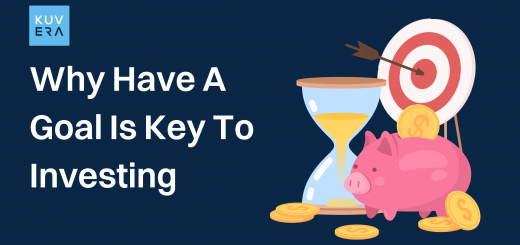When it comes to financial planning, most youngsters focus on budgeting and saving their money. But a proper financial planning requires much more than just budgeting and saving.
While everyone has different financial goals the larger purpose of financial planning is to ensure that you have a financially secure future and you can tackle any financial emergencies.
It is also to ensure that you have the financial freedom and resources to make decisions more freely.
To achieve this it is very important to start some basic financial funds as soon as you start earning. These funds will ensure that all your future financial needs are met.
Emergency fund

As the name suggests, emergency funds are created to tackle any financial emergencies and unexpected expenses. Emergency funds act as a safety net when there is any sudden financial need. This could include any need such as health, travel, unexpected loss of income etc.
This is one of the most important funds to start as soon as you earn your own money. Especially during Covid, people who had emergency funds were able to handle loss of income, increase in health expenses and other unexpected expenses better than those who did not have an emergency fund.
The amount of funds you should have in emergency funds can differ from person to person, depending on the nature of earning you have. A general rule of thumb is to have 6 months of your income set aside as your emergency fund.
This amount should be higher up to one year or more, if you are self-employed or don’t have a fixed income every month.
Retirement fund

In India most youngsters don’t start a retirement fund till their mid to late 30s and rely only on the EPF for their retirement corpus.
But most of us don’t even know how much money our EPF will collect at our retirement or how much retirement corpus we would need.
Retirement is an inevitable part of life and not planning it from an early age can create a considerable fund for your retirement.
In your 20s, you have more spendable income and less responsibility. This is the time to start investing in a retirement fund. You will also be far ahead of your peers as studies have shown that young Indians are severely unprepared for retirement. You will also enjoy the benefit of compounding if you start early.
To check your retirement corpus through EPF, you can use the EPF calculator.
Liquid savings fund
Liquid saving funds are also a type of emergency fund, the main purpose of this fund is to meet day to day unpredictable miscellaneous expenses. Like emergency funds these are also meant to tackle unexpected expenses but the scale is much smaller here.
This is the highly liquid savings that you would need in cases like going over budget, or encountering any unexpected expenses.
Most people prefer to have a liquid savings fund in their savings account or fixed deposit.
But the problem here is that while savings accounts give you the desired liquidity, they offer very low returns and fixed deposits give you more returns but are not liquid as they have a fixed tenure.
The best option here is to use, Kuvera’s Savesmart, here, you get the best of both worlds. The liquidity of a savings account and the returns of an FD. The returns here are linked to liquid mutual funds and offer you instant ₹2 lakh a day liquidity.
Investment fund
Most people in India don’t start investing as soon as they earn their own money. They are intimidated by investments and delay it till they have more money or more financial awareness.
But having an investment fund where you allocate a specific amount of money each month to be invested in various instruments will ensure that your money is increasing in value and you don’t become a victim of inflation.
Investment funds can be of various types. You can have a standard investment fund to transfer money to your mutual funds, FDs and other instruments every month.
You can also plan your investments for a specific goal, like a vacation, or a home with Kuvera goal based investments.
Insurance fund

Insurance fund is another fund which is beneficial if you start as early as possible. There are broadly two types of insurance which you should consider; term insurance and health insurance.
If you have people who are financially dependent on you, then term insurance is a must as it gives them financial security in case of your unfortunate demise. On the other hand, health insurance is advisable for everyone.
The reason you should start early here is because in your 20s, you are relatively healthy and the premium amount will be quite low. But if you start in your 30s or 40s, you will have to pay a higher premium amount as your health will likely decline.
Bottom line
Having a certain percentage of your income allocated to each of these funds also means that you will have less spendable money in your account and will not be tempted to make impulsive spending decisions.
You can auto debit your money to each of these to remove the hassle of transferring it from your main account.
Another important thing to remember here is that, only creating these funds is not enough. You also have to update it according to income. When your income increases, your contribution to these funds should also increase proportionately.
Maintaining all these funds might sound too much initially but starting early will not only give an advantage over your peers but also create a habit of living within your means and prioritizing future financial security over instant gratification.
Read more: Zen And The Art Of Investing
Watch/hear on YouTube: SIP, the right start to your dreams
Start investing through a platform that brings goal planning and investing to your fingertips. Visit Kuvera.in to discover Direct Plans and Fixed Deposits and start investing today.
#MutualFundSahiHai #KuveraSabseSahiHai!











